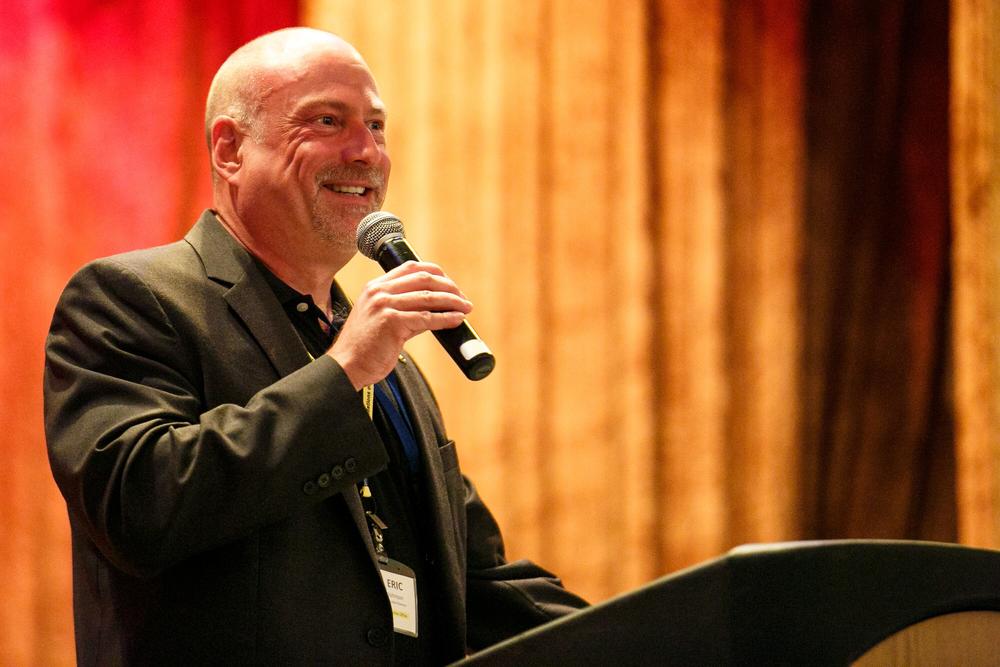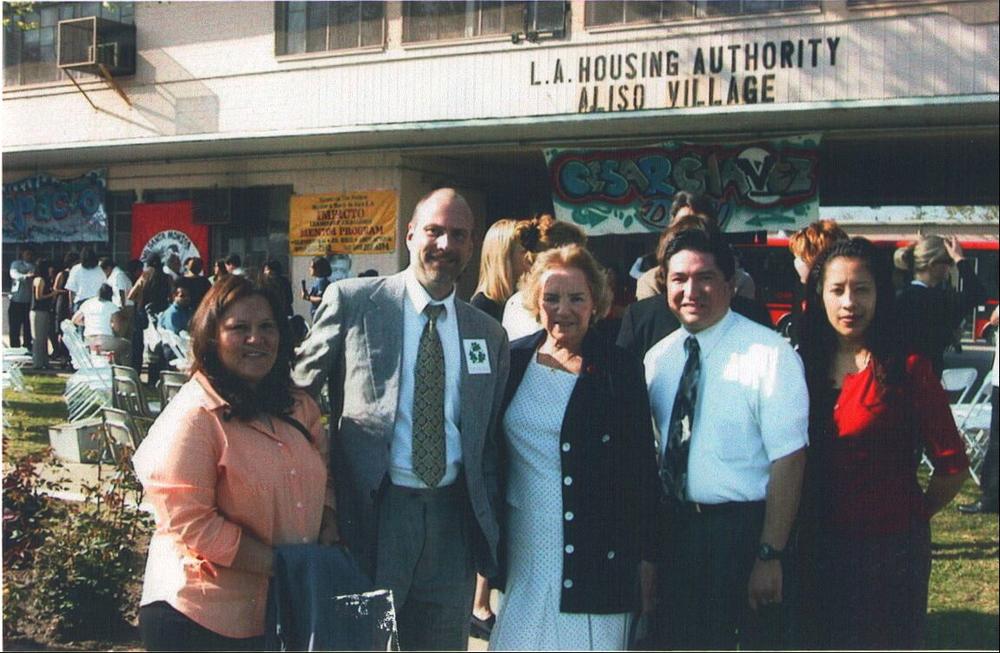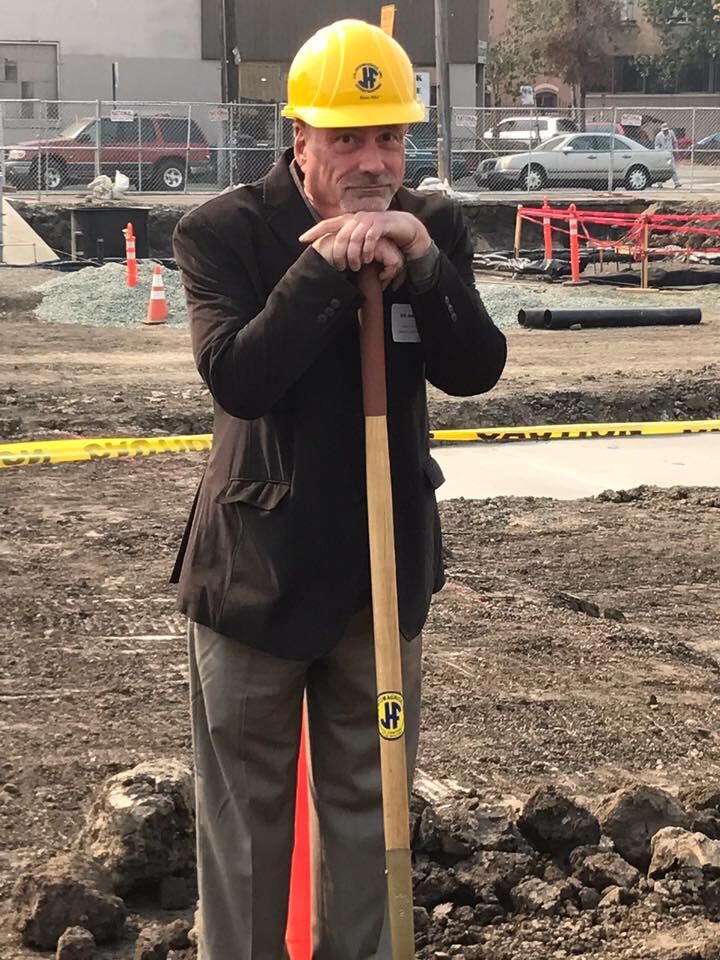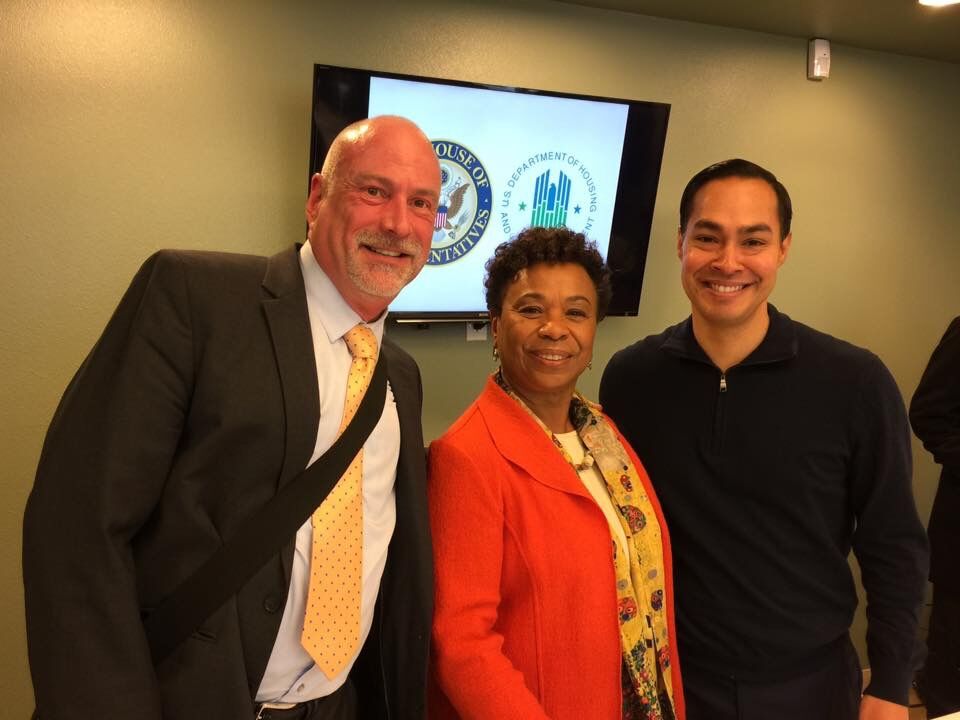CLPHA’s Membership Spotlight features the outstanding work and achievements of our member public housing authorities - the nation’s largest and most innovative PHAs. Based on interviews with PHA executives, these brief profiles spotlight our members’ initiatives to strengthen their communities and improve life outcomes for their residents. The Membership Spotlight is published in the newsletter, on clpha.org, and on our social media platforms.
In a few months, the Council of Large Public Housing Authorities (CLPHA) will bid farewell to an innovative, valued, and dedicated member who is a true asset to the public housing community. After nearly 30 years in the affordable housing industry and 11 years at the Oakland Housing Authority (OHA), OHA Executive Director Eric Johnson announced his plan to retire at the end of 2019. Johnson’s three decades of service to the affordable housing industry show his commitment to the individuals and families served by public housing authorities, as well as his enthusiasm for finding creative solutions to address the needs of low-income populations.


Johnson came to work in affordable housing from a completely different industry: Hollywood. In the 1980s Johnson worked as a location manager for various films, including Prizzi’s Honor and Turner and Hooch, but he sought a more meaningful career path. Johnson decided to accept a job in housing and rent stabilization with the City of West Hollywood, and through this career change he developed his passion for increasing housing opportunities for those who need them most. After several years at the City of West Hollywood, in 1996 he joined the Housing Authority of the City of Los Angeles (HACLA) in their resident services department.
During his tenure at HACLA, Johnson fulfilled a variety of roles in several departments, including serving as the head of the housing authority’s Housing Services Department, which included the property management, resident services, and capital improvements departments. He views his work under the Hope VI program in Los Angeles’ Boyle Heights neighborhood simultaneously as one of his greatest successes and challenges at HACLA – though the legal issues and negotiations with the community proved difficult and drawn-out, Johnson is proud of the project’s result and the stakeholders’ ability to find common ground in the end. He does regret that HACLA was unable to convince HUD at the time to build more units at increased density at the sites.


In 2008, Johnson accepted the role of deputy executive director at OHA, a move he also remembers being a significant career challenge because it was difficult for him to leave the Los Angeles communities he loved behind. However, upon moving to Oakland he quickly employed the negotiation skills he displayed during the Boyle Heights project in settling a legal battle between OHA and the City of Oakland. In the decade since, OHA’s relationship with the City has vastly improved, a testament to Johnson’s talents of bringing stakeholders together. Johnson demonstrated strong leadership in this deputy role, and in 2010 he was appointed OHA’s executive director.
At OHA, Johnson has deftly leveraged the housing authority’s Moving to Work (MTW) status to collaborate with local partners around the common goal of serving low-income individuals and families. Johnson is proud of the numerous programs developed under his tenure that link the housing authority’s capacity and resident services with existing federal, state, and local programs and improve life outcomes for various populations of low-income Oaklanders. Using a data sharing agreement between OHA and the local school district, the housing authority has been playing a role in increasing school attendance and parent engagement for their youngest residents.
In 2015, Johnson helped bring a $2.7 million HUD Jobs Plus grant to OHA, funding the housing authority’s successful jobs training and placement program. Another OHA program, in partnership with the Alameda County Social Services Agency, is using the foundation of the California Work Opportunities and Responsibility to Kids (CalWORKs) program to provide short-term housing assistance and Section 8 waitlist preference to families experiencing homelessness. Another program offers sponsor-based wraparound services to 125 families, including 25 foster youth exiting the juvenile justice system. Johnson says that without MTW flexibility, OHA programs like these that improve life outcomes for children, foster youth, families experiencing homelessness, and other populations needing targeted housing services would not be possible.
When asked about the public housing industry’s greatest needs, Johnson stressed that housing authorities need to seek diverse sources of funding and become much less dependent on federal, state, and local monthly federal assistance payments. Another area of great need, and of opportunity, that Johnson sees is the development of workforce housing for households making 60 to 120 percent of Area Median Income (AMI). Johnson believes that housing authorities could do more to address the housing needs of people who do not qualify for traditional housing assistance, yet cannot afford market-rate housing. “If we want to be seen as a protected and valuable industry, we need to serve these people [in the middle],” says Johnson. He adds that by addressing the workforce housing population, the public housing industry can build more support from communities and elected officials.
Johnson was reluctant to position himself as an expert when asked if he had any advice for public housing professionals, but he observed that his experience moving between different skill sets and departments at HACLA, including resident services, development, and capital improvement, and becoming knowledgeable in as many areas as possible, helped him to understand the industry from several angles. He also emphasized the importance of always remembering who public housing authorities serve. “Affordable housing is not about the housing, it’s about the people who live in the housing, and their life outcomes,” he said. “Never forget this.”


In OHA’s press release announcing his retirement, Greg Hartwig, Chair of the housing authority’s Board of Commissioners, praised Johnson’s successful career at OHA and his passion for improving residents’ life outcomes: “Eric has exceeded our highest expectations and has been a pleasure to work with… He has always kept the welfare of our residents and the need to expand our reach to serve even more people as his highest priority; adding new life-enhancing services for our residents and significant numbers of new affordable housing units. His leadership in mitigating the effects of the worst rent and housing crisis in Oakland history has been exceptional. In addition, Eric has positioned OHA for long term success in an era of uncertain government funding and has won both local and national recognition. He will be dearly missed by all of us.”
Oakland Mayor Libby Schaaf also praised Johnson’s leadership and unwavering focus on resident wellbeing: “Oakland city leaders have benefited immensely from Eric’s leadership at the Housing Authority, and many more of our vulnerable residents and families enjoy a sense of housing security thanks to his personal mission to make federally funded programs work better for those who most rely on them. As a member of the city’s Housing Cabinet, Eric approached his role with a refreshing blend of technical expertise and humanity. During the worst affordable housing crisis in a generation, Eric has created initiatives which serve as a model for the region, and consistently fought to break down silos in the human service sector that have historically kept communities from ending cycles of poverty. My colleagues and I will miss him dearly and wish him well in all his future endeavors.”
When asked about his retirement plans, Johnson deadpanned that he would “float in the pool” at his house in Palm Springs. After three decades of exceptional, innovative service to the affordable housing industry and many years of engaged CLPHA membership, CLPHA wishes Johnson a happy and relaxed retirement.
Image captions (from top to bottom, left to right): Johnson with children at Lockwood Gardens “School’s Out Block Party;” "Never give this man a mic" - Johnson addresses OHA Employees at their annual all-staff retreat; Ceasar Chavez Day at HACLA's old Aliso Village with Ethel Kennedy and the HOPE VI team; 2018 groundbreaking event for a VASH project-based Section 8 project currently under construction; With Congresswoman Barbara Lee and HUD Secretary Julian Castro after a meeting with Tech Industry Leaders to discuss the housing crisis in the Bay Area; With Oakland Mayor Libby Schaaf and others cutting the ribbon at the Grand Opening of OHA’s new Parents And Children Together (PACT) site, expanding the number of units for this reunification/re-entry program